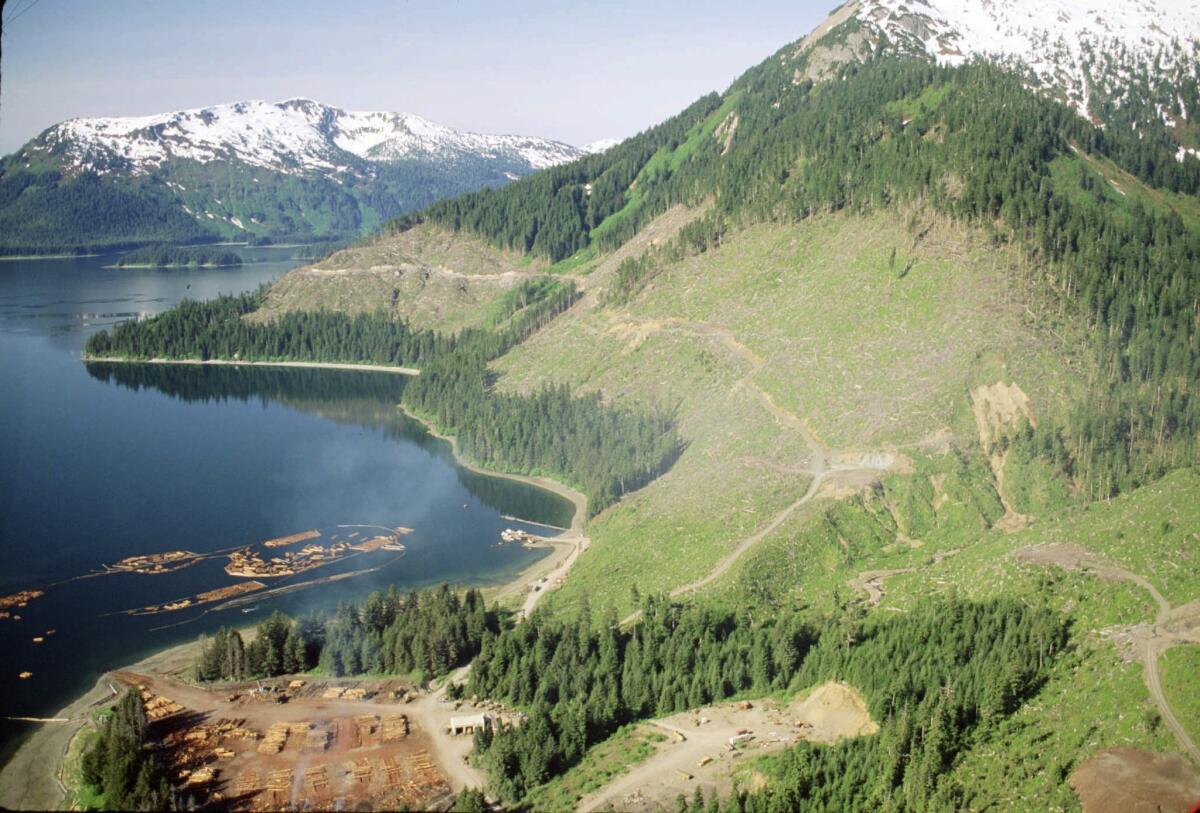Opinion: Defense bill includes ill-advised Alaska and Arizona land measures

- Share via
So what does funding for the Department of Defense have in common with Alaska’s Tongass National Forest or the Tonto National Forest in Arizona?
Absolutely nothing. Which is why an upcoming Senate vote on the National Defense Authorization Actis so aggravating. Even when members of Congress manage to find a compromise to move legislation, they still screw it up by mixing their apples in with their oranges.
Our colleague Brian Bennett has the breakdown of the public lands at play in this measure, which passed the House last week. Some large conservation groups back the bill primarily because it is the first significant preservation action by Congress since the Republicans (the same folks who have decried President Obama’s designation of national monuments) took over the House in 2010, and because it adds some places to the protected list.
The biggest hits are to the Tongass, the 17-million-acre expanse in southeastern Alaska that is part of the world’s largest temperate rain forest. Under the package, about 70,000 acres of forest (including threatened old-growth areas) will go to settle a land claim by Sealaska, a for-profit outfit owned by several Native American tribes that has a track record of clear-cutting forests (the bill also adds about 150,000 acres to the conservation area). The Audubon Society, among others, thinks it’s a bad idea:
“After accounting for the ‘conservation land additions,’ S 340 would still result in a net loss of productive old growth, large-tree old-growth, and biological hotspots (i.e., core areas of ecological value). In addition, the higher-value roadless areas and old-growth reserves would be lost. If enacted, this legislation would repeat a destructive pattern of targeting and exploiting the rarest and highest value timber lands on the Tongass while conserving lower grade and less productive habitats. Because Sealaska Corporation has already identified and filed its final land entitlement selection priorities under existing law, this costly legislation is not necessary and should be rejected.”
In Arizona, a land swap gives a copper-rich chunk of desert to a subsidiary of the Rio Tinto mining company. It’s land that also happens to be of significant cultural and historical interest to the Apache tribe. And Rio Tinto, based in London, has a history.
In case you are wondering: No, you wouldn’t be cynical to think those deals are gifts to corporations.
So what is good about the package? According to the National Parks Conservation Assn., there are some welcome additions to the parks system, and some legislative first steps to adding still more, which is to be lauded.
But the good elements seem to be far out of balance when measured against the beating the Tongass will suffer, and the abject disregard of Native American interests in turning over the Arizona land to an international mining firm.
In fact, this compromise looks a lot more like capitulation with a couple of bones tossed in.
Follow Scott Martelle on Twitter @smartelle
More to Read
A cure for the common opinion
Get thought-provoking perspectives with our weekly newsletter.
You may occasionally receive promotional content from the Los Angeles Times.










